Blog
-
Unfriendly policies driving Nigerians out of business—Comrade Emelieze
- On 20/12/2024
- In News
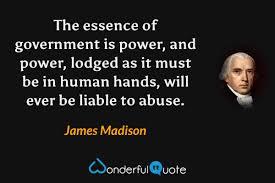 Several businesses in Nigeria have closed shop due to the harsh policies of the government.
Several businesses in Nigeria have closed shop due to the harsh policies of the government.This assertion was made by the spokesperson of the Federal Workers Forum, Comrade Andrew Emelieze.
''So many businesses are no longer finding it difficult to cope with the unfriendly policies of the government but are now finding it extremely impossible to stay afloat, and the only option open to them is to close shop. The general costs of doing business in Nigeria have gone beyond the reach of millions of Nigerians. Businesses have continued to collapse, while those in government are still giving empty assurances,'' Comrade Emelieze stated.
-
Syndicate steals IBEDC service wires from residence in Ibadan
- On 18/12/2024
- In News
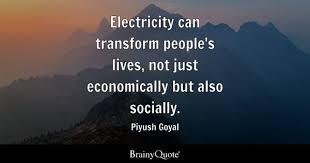
 A syndicate that specializes in the stealing of electric service wires from residential buildings now operates in Ibadan, Nigeria.
A syndicate that specializes in the stealing of electric service wires from residential buildings now operates in Ibadan, Nigeria.The criminal group comprising some unscrupulous elements in the Ibadan Electricity Distribution Company (IBEDC) co-opted financially indisposed individuals to give out vital information that would be of mutual benefit to both of them.
On Tuesday, 17 December, 2024, between 2:45 pm and 3:10 pm in the afternoon, a marketer and a technician, both workers of the IBEDC, stole the four service wires that supply electricity to the four apartments at No. 3 Kehinde Aderibigbe Street, Olorunsogo, Molete.
Before the ugly act, the criminals had sat down and strategized at a shoemaker's shop at No. 6.
The shoemaker had in turn entertained them.
After the act, the criminals, who brought along a ladder, made away with the stolen items while residents of the community watched with keen interest.
In recent times, cases of the theft of the DISCO's equipment and materials have become rampant.
-
Backsliding
- On 12/12/2024
- In Update with Solomon

 Once you become born again, avoid the temptations of backsliding.
Once you become born again, avoid the temptations of backsliding. In the present world, temptations abound; everywhere you go, it is now left for you as a true believer to resist such temptations.
Do not become an enemy of yourself; meditate on the word regularly when you notice you are treading the wrong path.
Look up to God, and painstakingly avoid looking up to man.
Resist any attempt to backslide by anyone; it could be your friends, your colleagues at your place of work, your relations, or anyone close to you.
Be steadfast. Hosea 11:7
-
Underage criminals burgle residence in Ibadan
- On 12/12/2024
- In News

 Young boys aged between 8 and 15 years old on Thursday burgled a residence in the Olorunsogo Molete Ibadan area of Oyo state.
Young boys aged between 8 and 15 years old on Thursday burgled a residence in the Olorunsogo Molete Ibadan area of Oyo state.The boys, led by one Imole Adewale, a junior secondary school student of Ibadan Grammar School, numbered about 12 and pretended to be playing football along Kehinde Aderibigbe Street before some of them broke into the apartments at No. 3 and made away with valuables running into hundreds of thousands of Naira.
Surprisingly, residents who own shops in and around the scene of the incident provided cover for the young criminals.
Before this time, parents and guardians in the community had repeatedly aided and abetted their children and wards in criminality.
Indeed, homosexuality, prostitution, drug addiction, and several other forms of social vices have become the order of the day as most of the young people have veered off the path of education.
Sadly, those in charge remain unperturbed despite the irredeemable damage that has been done to the young lives, even as lawlessness, indiscipline, and criminality have been adopted as daily ways of lives.
-
Time as Nemesis
- On 07/12/2024
- In Update with Solomon

 It is disheartening to come to terms with the fact that intimidation, threats, attacks, and manipulation are now tools of governance at all levels of government. Very strange and laughable.
It is disheartening to come to terms with the fact that intimidation, threats, attacks, and manipulation are now tools of governance at all levels of government. Very strange and laughable. Leadership has been redefined to include deceit, manipulation, and lies, among other things.
-
Cultists rob pedestrian in Ibadan
- On 05/12/2024
- In News

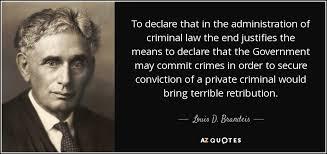 Cultists on Thursday afternoon attacked and dispossessed a gainfully employed Nigerian of his personal belongings and valuables.
Cultists on Thursday afternoon attacked and dispossessed a gainfully employed Nigerian of his personal belongings and valuables.The cultists, led by one diminutive hoodlum named Okunnu, numbered about 18 and operated from an events planner's shop at the Baptist Convention shopping complex, Scout Camp Junction, Challeneg/Molete road, Ibadan, Oyo state, Nigeria.
Acting under the influence of marijuana and other illicit substances, they attacked the innocent Nigerian and made away with all he had on him.
Despite the alarm raised by the robbery victim, bystanders who were complicit cheered the criminals.
Of worry is the role played by parents and guardians in crime, even as the general belief is that an unspecified number of law enforcement agents and government officials provide material and moral support for these criminals.
This informs the increasing rate of lawlessness, indiscipline, and criminality in many communities in the state.
Sadly, the feeble efforts of the state government to deal decisively with the outlaws have so far yielded no positive result.
-
The Watch Man
- On 05/12/2024
- In Update with Solomon
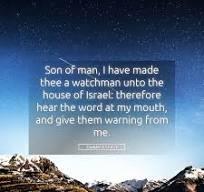
 You have to realize that the people you pay to keep watch over you and your property can only function to the maximum of their human ability.
You have to realize that the people you pay to keep watch over you and your property can only function to the maximum of their human ability.Their watchcare is not absolute, and therefore you must look to the greater Guardian, God, who is your keeper and your helper.
If you are lying down in your home, you will sleep securely because the God who keeps you will not slumber, nor will He allow anyone to move your feet from their resting place.
In these times, out of envy, jealousy, and hatred, men attempt to dig a pit under your feet in order to cause you to fall or in order to make you lose your position, your balance, your honor, or your office; but if you look up to God who dwells in heaven, if you trust in Him through Christ, no one will ever be able to move your feet away from security to destruction.
He will keep you as the shepherd keeps his sheep so that you do not become the prey of wolves.
Read 2 Kings 9:17
-
The desire to make a positive impact behind my success: Best Overall Male Graduate Lead City University
- On 03/12/2024
- In News

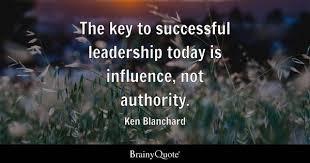 On Monday, 2nd December, 2024, the chancellor of the Lead City University, Ibadan, Nigeria, Prof. B Ogunmola asserted that a true leader sets direction while emphasizing that leadership is both a responsibility and a privilege.
On Monday, 2nd December, 2024, the chancellor of the Lead City University, Ibadan, Nigeria, Prof. B Ogunmola asserted that a true leader sets direction while emphasizing that leadership is both a responsibility and a privilege.Indeed, in Nigeria today, leadership is about illiteracy, ignorance, lawlessness, and indiscipline.
However, Prof. Ogunmola admonished the 2,312 graduates to become leaders who will uphold values, stressing that the university has equipped them with all they require to shape the world.
In this piece, the overall best male graduate of the university from the department of Medical Laboratory Sciences, Mr. Jegede Samson,Grade Point Average (GPA) of 4.92 discloses that his commitment to excellence and the support from his family, lecturers, and friends are the factors behind his success. Excerpts:
1) Motivation behind my success.
My motivation comes from a combination of personal ambition, a deep commitment to excellence, and the support I've received from my family, lecturers, and peers. I believe in setting high standards for myself and always striving to be better, not just for academic success but for personal growth. I've always been driven by the desire to make a positive impact, whether through my studies or by contributing to my community. Ultimately, my success is a result of persistence, the guidance of others, and an unwavering passion for learning.
2) Message to young Nigerians
My message to all young Nigerians will be a quote from Nelson Mandela: “The greatest glory in living lies not in never falling, but in rising every time we fall."
3) Message to the government at all levels in relation to the funding of education.
My message to the government at all levels is that education is the foundation for a nation's growth and prosperity. Adequate funding is essential to ensure that every student has access to quality education, regardless of their background or financial situation. It's not just about building schools or providing resources, but also about investing in the development of teachers, research, and infrastructure that will allow our future leaders to thrive. By prioritizing education, the government can help unlock the full potential of young people, fostering innovation, reducing inequality, and building a more prosperous society for all.
